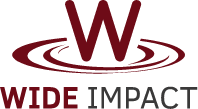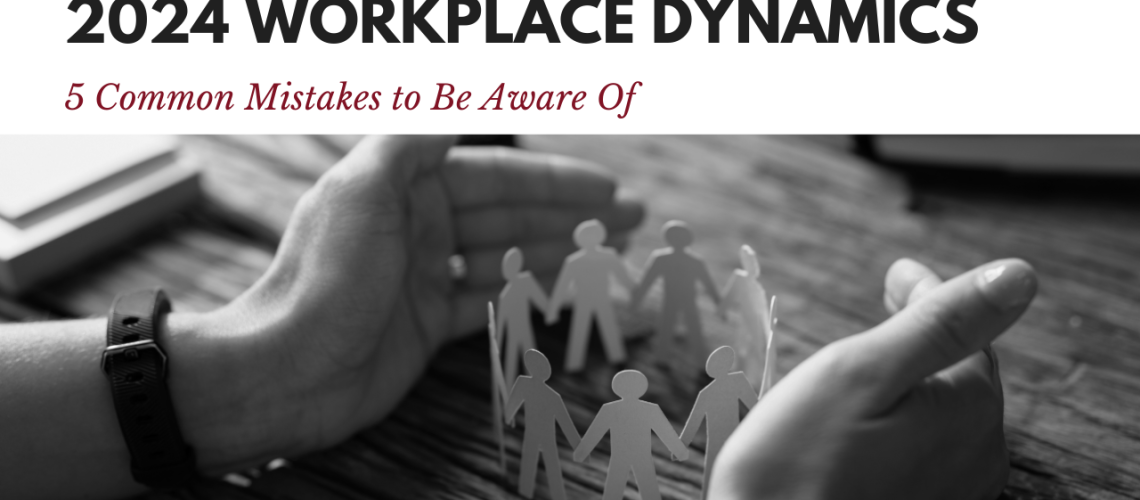By Dr. Salam Slim Saad
You’re dedicated, hardworking, and passionate about what you do. Yet, despite your best efforts, you find yourself facing unexpected obstacles, encountering misunderstandings with colleagues, or struggling to advance your career. If this scenario sounds familiar, you’re not alone. Workplace dynamics have become increasingly complex, and even the most skilled professionals can inadvertently stumble into common pitfalls. As we reflect on the challenges of the past year and prepare for the uncertainties of the coming year, it’s crucial to stay alert and adaptable in the ever-evolving work environment.
Top 5 Common Employee Mistakes in the Workplace
It was a crucial project meeting, and tensions were running high. I had just received a task from a colleague, but the instructions were anything but straightforward. Frustration simmered as I struggled to decode what was expected of me. In the end, the confusion resulted in delays, and the project’s success hung in the balance. It was a wake-up call, highlighting the vital role of communication in the workplace. In this section, we’ll address the top 5 common employee mistakes that can impact the dynamics of your workplace.
1. Insufficient Communication Skills
Many employees often underestimate the significance of effective communication, which can subsequently lead to misunderstandings and conflicts within the team. For instance, an employee’s failure to clearly communicate project requirements to a colleague can result in delays and confusion. This breakdown in communication not only hampers teamwork but also has the potential to impact project outcomes and strain employee relationships. Therefore, it is crucial to prioritize and enhance communication skills as a key factor in fostering a harmonious and productive workplace.
2. Procrastination and Time Management
Habitual procrastination poses significant issues, including missed deadlines, reduced productivity, and heightened stress levels. For instance, when an employee consistently delays completing their reports, it not only causes stress for themselves but also hampers team productivity. This disruption in workflow can result in a range of negative consequences. Therefore, promoting timely task completion is crucial to maintaining efficiency and reducing workplace stress.
3. Negativity and Gossip
Negative attitudes and gossip in the workplace constitute a significant issue, as they contribute to a toxic environment that undermines employee morale and collaboration. For instance, when employees engage in gossip, spreading unfounded rumors about their colleagues, it results in a breakdown of trust within the team. This analysis reveals that negativity and gossip erode the foundation of trust and hinder effective cooperation among team members. In conclusion, promoting a positive and open atmosphere is essential to cultivate better working relationships and counteract the detrimental effects of negativity and gossip in the workplace.
4. Resistance to Change
Employee resistance to change is a critical issue that hampers adaptability and competitiveness in today’s fast-evolving business landscape. For instance, when staff members resist the adoption of new technology, it directly impacts the company’s ability to stay competitive in the market. This resistance to change impedes the company’s adaptability and stifles its potential for growth and innovation. In conclusion, fostering an open mindset and a willingness to embrace change is paramount for a company’s success in the modern business environment.
5. Lack of Accountability
The issue at hand involves employees shirking responsibility for their actions, leading to a breakdown of trust and integrity within the workplace. For instance, when an employee refuses to acknowledge their mistake and instead points fingers at a colleague for a project’s failure, it exemplifies the problem. This lack of accountability not only damages relationships but also erodes the foundation of effective teamwork. In conclusion, fostering a culture of accountability is imperative for creating and maintaining a trustworthy and efficient work environment.
The Impact of Employee Mistakes on Personal Productivity
Employee mistakes can significantly influence an individual’s personal productivity in the workplace, creating a ripple effect that affects their overall performance. This article explores the various ways in which common employee mistakes can have a direct impact on individual productivity.
1. Lack of Accountability
When employees neglect to take responsibility for their actions or outcomes, it can undermine their personal productivity. For instance, if you consistently miss deadlines without acknowledging your mistakes, it can lead to increased stress and time pressure. This lack of accountability can result in decreased efficiency and hinder your ability to meet your personal productivity goals.
2. Poor Communication
Miscommunication can lead to misunderstandings, conflicts, and task delays, all of which can directly impact your personal productivity. For example, if you receive unclear instructions or fail to communicate effectively with colleagues, you may spend more time seeking clarification or resolving conflicts. This inefficiency can reduce the amount of work you accomplish in a day and hinder your personal productivity.
3. Negativity in the Workplace
Displaying a consistently negative attitude can demotivate you and undermine your personal productivity. For instance, if you harbor pessimism or engage in workplace gossip, it can affect your enthusiasm and engagement in tasks. This negativity can result in decreased efficiency, leading to lower personal productivity levels.
4. Resistance to Change
Resisting change in the workplace can directly impact your personal productivity. For example, if you are reluctant to embrace new technologies or methods, you may find it challenging to adapt to new processes or systems. This resistance can slow down your work pace and hinder your ability to stay productive in a rapidly evolving work environment.
5. Low Attention to Detail
Low attention to detail can have a significant impact on your personal productivity. Inaccuracies stemming from this issue can lead to rework and wasted time. For instance, overlooking important details or making careless errors can require additional effort to correct, reducing the time and energy you can invest in other tasks. This can directly affect your personal productivity and your ability to meet your goals.
Tips for Avoiding and Addressing These Mistakes
Prioritize Communication:
- Encourage Openness: Embrace a culture of open and transparent communication. Don’t hesitate to share your ideas, questions, and concerns. Your voice matters, and seeking clarification when needed is a sign of proactiveness.
- Utilize Collaboration Tools: In our increasingly remote and dispersed work environments, leverage collaboration tools and platforms. Project management software and instant messaging apps can help streamline communication, ensuring you stay connected with your team.
- Schedule Regular Check-Ins: Participate actively in team meetings and check-ins. These gatherings serve as opportunities to exchange information, raise questions, and address any uncertainties. Your engagement keeps the flow of information smooth.
Set Clear Expectations:
- Define Goals and Responsibilities: Seek clarity by ensuring well-defined goals, deadlines, and individual responsibilities. If you’re unsure about your role or the project’s direction, don’t hesitate to ask for a detailed project brief or job description.
- Document Expectations: Take advantage of written documentation. It serves as a reference point for everyone. Documented expectations, such as project plans and task lists, help minimize confusion and enhance accountability.
Promote Your Growth:
- Embrace Training Programs: Take initiative in your professional development. Participate in training programs that align with your career goals. Whether it’s workshops, online courses, or certifications, continuous learning enhances your skills.
- Engage in Mentorship Initiatives: Be open to learning from experienced colleagues and contribute your knowledge to newcomers. Mentorship programs offer valuable insights and foster growth both for you and your peers.
- Create Career Development Plans: Collaborate with your supervisors to set clear career development paths. By aligning your personal growth with the organization’s goals, you remain motivated and engaged in your role.
Cultivate a Positive Work Culture:
- Acknowledge Achievements: Celebrate your achievements and those of your colleagues. Recognition boosts morale and motivation across the team. Remember, your contributions are essential to our success.
- Embrace Work-Life Balance: Make the most of the work-life balance initiatives in place. Flexible schedules, wellness programs, and stress-reduction initiatives are designed to support your well-being, which, in turn, positively impacts productivity.
- Address Conflicts Constructively: Play a role in maintaining a harmonious work environment. Address conflicts and issues promptly, and be a part of open and respectful discussions. Clear conflict resolution procedures are in place for your benefit.
Encourage Feedback Channels:
- Create Safe Spaces: Our organization values your feedback. Feel comfortable expressing your opinions and concerns without fear of reprisal. Managers are approachable and receptive to your input.
- Engage in Two-way Feedback: Actively participate in feedback mechanisms such as surveys and performance reviews. These channels facilitate constructive dialogue between employees and managers. Your input on company processes and policies is invaluable.
Proactive Measures to Address These Mistakes
it’s essential to recognize that errors and missteps are a natural part of the journey. Nevertheless, what distinguishes high-performing organizations from the rest lies in their unwavering dedication to proactively addressing these blunders. This commitment comes to life through a multifaceted approach, including providing training, encouraging open dialogue, and setting crystal-clear expectations. Each of these facets plays a pivotal role in nurturing an environment where mistakes are not seen as setbacks but as opportunities for growth and improvement.
- Providing Training: Offer training programs to enhance communication skills and time management techniques, empowering employees to excel in their roles.
- Encouraging Open Dialogue: Foster an environment where open and constructive feedback is enabled, allowing employees to address issues openly instead of resorting to negativity or gossip.
- Setting Clear Expectations: Establish clear expectations and responsibilities for each team member to promote a sense of personal responsibility and accountability.
As we step into 2024 with new opportunities on the horizon, let us collectively strive for workplaces that inspire growth, innovation, and mutual success. By including positive workplace practices, both employees and employers can contribute to a brighter and more prosperous future for all.
Success isn’t just determined by your skills and talents; it also hinges on your ability to navigate the complex web of workplace dynamics. As we step into the year 2024, the world of work continues to transform, presenting both new opportunities and challenges for employees and individual professionals alike.



